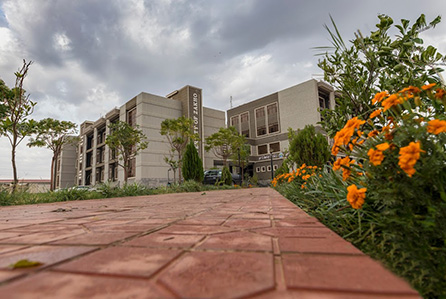
Promoting Gender Equality at the University of Zakho: Admissions, Teaching, and Employment Policies
Introduction
The University of Zakho (UoZ) is committed to promoting gender equality across all areas of university life, ensuring that all individuals have equal opportunities in admissions, teaching, and employment. This commitment reflects not only the values of inclusivity and respect but also adherence to national and international legal frameworks designed to foster equality regardless of race, religion, or gender. This book serves as an official guide to UoZ’s gender equality policies, providing students, faculty, and staff with a clear understanding of their rights and responsibilities within the university.
This book explores how gender equality laws and policies apply to key aspects of university operations, offering practical insights into how these principles are implemented in areas of admissions, teaching, and employment. It is intended to promote awareness, encourage active participation in gender equity initiatives, and provide resources for individuals who may experience or witness gender-based discrimination.
Legal Foundations of Gender
Equality
The University of Zakho operates under a variety of national and international laws that protect the rights of all individuals to equal treatment in education and employment. Iraq’s Constitution guarantees equality before the law and prohibits discrimination based on gender, ensuring that public institutions like UoZ adhere to fair practices across all facets of university life.
At an international level, the United Nations’ Sustainable Development Goals (SDGs) call for gender equality in education (SDG 4) and gender equality across all areas of life (SDG 5). Additionally, conventions from the International Labour Organization (ILO) mandate equal opportunities in employment and prohibit gender-based discrimination in the workplace. As a public institution, UoZ upholds these legal standards and actively works to integrate them into university policy.
Gender Equality in Admissions
UoZ is committed to an inclusive admissions policy that provides fair access to education for all genders. This policy is designed to prevent biases and ensure that every applicant is evaluated on merit, without discrimination based on gender, race, or religion. The admissions process includes several key elements to uphold gender equality:
Gender Equality in Teaching
and Curriculum
UoZ values a learning environment where all genders feel included, respected, and supported. To ensure that gender equality extends into the classroom, the university has established specific policies for faculty and academic staff to implement gender-equitable teaching practices.
Gender Equality in Employment
and Career Advancement
The University of Zakho is dedicated to gender equality in hiring, career advancement, and workplace culture. The university's employment policies are designed to ensure that all faculty and staff have access to fair treatment, opportunities, and resources, regardless of gender.
Accountability and Monitoring
Gender Equality Progress
To track progress and uphold accountability, UoZ has established a framework for monitoring gender equality across admissions, teaching, and employment. Key performance indicators (KPIs) include gender representation in various academic programs, gender distribution in faculty and staff positions, and pay equity statistics.
Each year, the Office of Diversity and Inclusion publishes a Gender Equality Report that outlines the university's progress, achievements, and areas for improvement. This report is made available to the entire university community, encouraging transparency and demonstrating UoZ’s commitment to continuous improvement. The university also conducts surveys to gather feedback from students, faculty, and staff on their experiences, allowing for data-driven adjustments to policies and practices.
Conclusion
The University of Zakho is committed to creating a campus environment where gender equality is not just a goal but a standard. Through inclusive admissions, equitable teaching practices, and fair employment policies, UoZ fosters a respectful, diverse, and supportive community. By adhering to national and international laws on gender equality and implementing progressive policies, UoZ is setting an example as a leader in gender inclusivity in higher education.
This book serves as an essential guide for understanding and implementing gender equality at UoZ, offering clear policies, actionable strategies, and a vision for a campus that truly embodies fairness and respect. Whether in admissions, teaching, or employment, UoZ’s commitment to gender equality reinforces its mission to empower every individual in its community to achieve their full potential.
